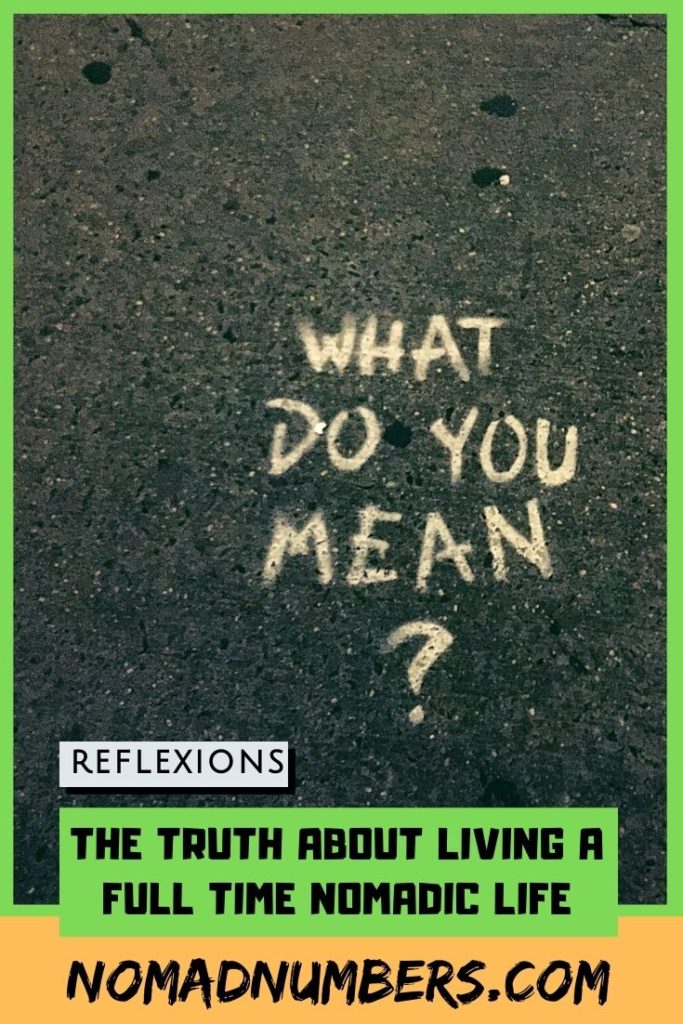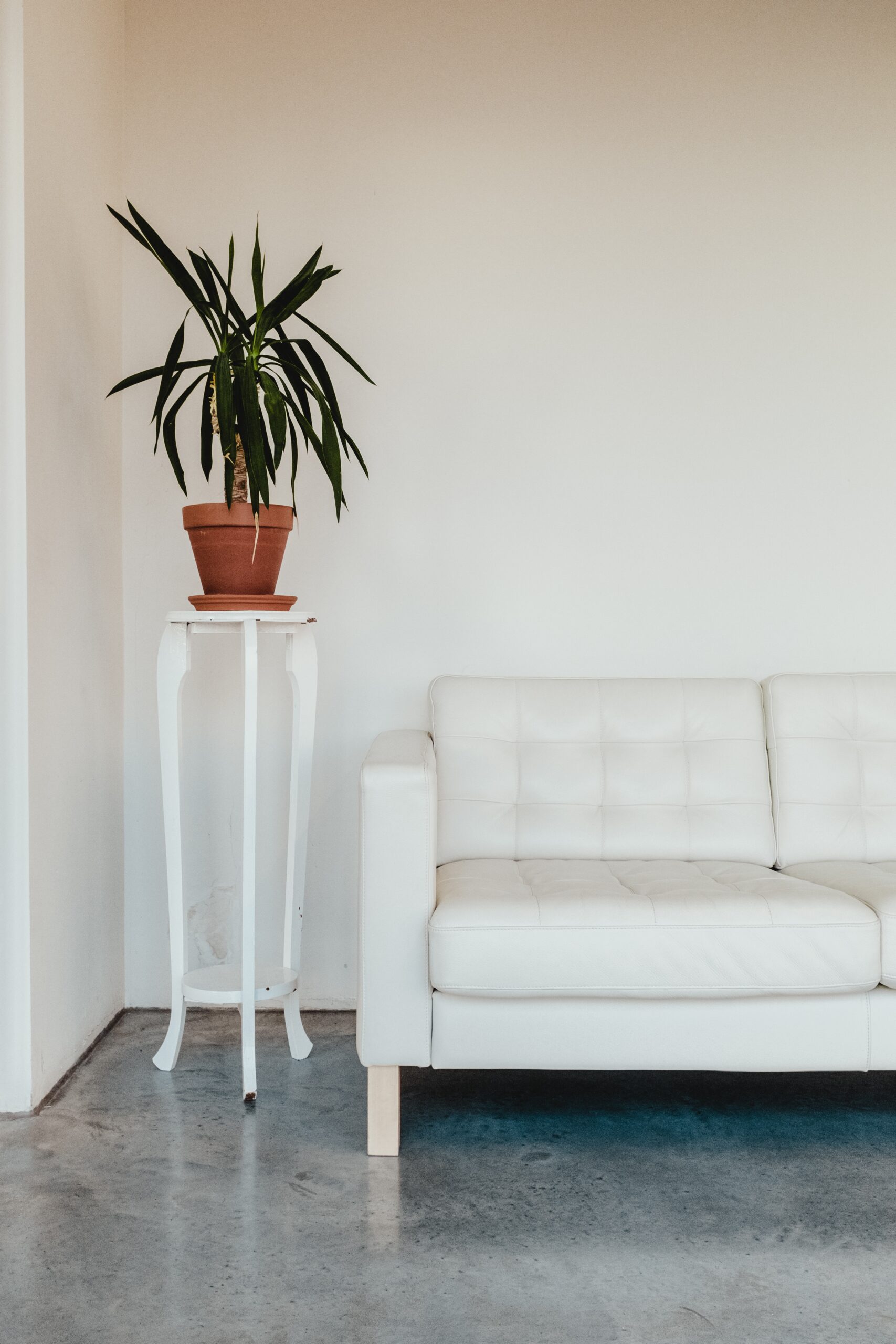We once lived in a high-cost city and had well-paying jobs but left all of that to start traveling the world full time. We downsized our lives to two backpacks each and were surprised by the type of questions we would receive when trying to explain what our life is about and what assumptions people had.
In this post, I will be answering the most common questions we have been getting through our nomadic journey (so far!) as well as giving you some insights into what a day in our lives looks like as full-time slow travelers.
Are you ready to dive in?
Some links to the products mentioned below are affiliate links, meaning that if you click and make a purchase, we (Nomad Numbers) may receive a commission at no additional cost to you. For more information please review our disclaimer page.
Commonly asked questions
Here are the most commonly asked questions we usually get when people are interested to know more about our lifestyle.
Q: What do you do for work?
This question comes up usually when we show up for an activity during the middle of the week repeatedly while most people our age would usually be either working at an office or from home. We like to say that we have made work optional and we only work on things we deeply care about and when we feel like we want to work on them 🙂
=> If you want to know more about our passions, you can subscribe to our blog newsletter to stay in touch and check out our travel tool as these are 2 of the projects we are focusing on right now.
Q: How are you funding your lifestyle?
This is usually a follow up on the previous question. We try to keep it simple by telling people that we have built enough passive income to fund our simplistic lifestyle
⇒ If you want to know more about our investment strategy, we encourage you to listen to the podcast episodes we’ve been featured on as this is usually a topic that comes up!
Q: How to handle boredom / How do you find things to do with all the free time you have?
I guess people that are busy with work during the week might find it difficult to find things to do instead and would get to this conclusion from their own experience. It turns out that we are now asking ourselves how we had time to live while we were working 5 days a week, roughly 50 weeks a year!
Also, the fact that we change location on a regular basis (usually every 4-6 weeks – pre-2020 pandemic), we never really set a routine as there is always a new place, event, or class to attend and always new people to meet with
=> If you want to know more about what we’ve done during our nomadic lifestyle, check out our destination reports of all the places we’ve visited so far and what we’ve done in each of them.
Q: Aren’t you missing home?
We don’t miss home for the location itself, but rather for the family/friends we have left there. Once I moved to California (in 2008), I used to see my family/friends in France about 2-3 weeks every 18 months or so which was a pretty drastic change mostly due to the distance between us and the limited number of time off I had to split between friends/family and travel.
As for San Francisco, I personally don’t miss the location itself after seeing so many other places that better match our lifestyle. In the past 2 years of slow travel, we have already found places for a fraction of the cost that has an even better overall quality of life for us (check our posts about Portugal in Europe or Taipei in Asia for more insights).
Note: During the 2020 pandemic, we have been missing our family more than usual as we won’t be visiting them his year but hope to see them in 2021.
Q: Aren’t you tired of always moving to a new location?
Again, I think people assume that we are changing locations every 2-3 days and countries every week or trying to check off every item on a bucket list in a single year. By embracing slow travel, we are making full-time nomadic living sustainable.
=> Check out our post about the pros/cons of a nomadic lifestyle and why slow is more!
Q: By living out of two backpacks, are you depriving yourselves?
When we explain that 95% of our possessions fit in the two backpacks each of us carries, people wonder if we deprive ourselves of owning more stuff. To that, we like to let them know that by owning only what we truly value and need we live with less clutter and more abundantly than they might think.
=> Check out our post about minimalism: why less is more and our detailed packing list: Men’s carry-on packing list for long-term travel and Women’s carry-on packing list for long-term travel.
A day in our life as full-time nomads
Now let’s take a look into what our life looks like on a daily basis as we believe people have an unrealistic or utopic vision of the nomadic lifestyle which isn’t definitely what our life is about.
We tend to have two main types of days: days when we get out to explore the place surrounding us and days when we get to stay (mostly) home to work on our passion.
What do our days have in common?
We try to start our days by sticking as much as possible to our morning routine that I’ve detailed in our “Morning Routine” blog post series.
From a high-level here are the core activities of my morning routine (in chronological order) and the value I get from each of them:
- Meditation / Gratitude: start the day away from distractions, get to a mentally clear and emotionally calm and stable state. How 10-20 minutes of daily meditation is the best medicine to take care of your mind.
- Exercising & Cold shower: start the day away from distractions, wakes you up, keeps the body in shape, gets the blood flow going
- Journaling: start the day away from distractions, gives me focus and makes me feel good by looking back at my past accomplishments. To learn more about this practice check our post: How 5 minutes of bullet journaling can help you focus and turbocharge your day
- Reading: getting new knowledge by reading some life-changing books
- Intermittent fasting: bring energy for the day, by letting the gut rest so the brain can be fully available.
Note: I have to admit that during our fast-travel month it is particularly hard to stick to our morning routine as we like to anchor it to our environment that usually gets lost when we move to a new location. I might then try to get back to that routine either throughout or at the end of the day but I’ve noticed that once you start being in the motion it is much harder to stick to it.
We also try to wind down the day the same way. Ideally by staying away from our devices at least 1-2 hours before bed (hasn’t happened lately, unfortunately) and try to get to bed no later than 10 pm. Mrs. NN is really good at that, putting on our UVEX blue light blocking glasses (Amazon affiliate link) at least 2 hours before bed.
What do our Exploration days look like?
Exploration days are about discovering the culture, people, or places that surround us.
It is important to note that we can either explore once settled to a location or while being on the road. We like to call the former “slow travel” and the latter “fast travel” since the time spent in a location can vary greatly from one month or a few days.
We tend to start our exploration days by packing our backpacks and heading towards the location where we plan to start our activity. Most of our exploration days while “slow traveling” are usually done through either hiking or biking which means we usually need to get public transportation (or private transportation in some rare situations) to get us there. When fast traveling we would be more likely to try special activities like snorkeling, scuba diving, or kayaking. Nevertheless, we aren’t limiting the activity based on the speed of our travel. We could definitely take a cooking class while staying in Taipei for a few months and still go hiking in the national parks of Taiwan during a month-long around the island trip and vice-versa.
We will usually find a place for lunch around lunchtime to break our fast before resuming our activity.
In the afternoon we will likely keep exploring the location. We like to wrap up our exploration around 3-4 pm to start heading back home. If we had a light lunch and happen to be close to some food, we usually get a snack before heading back.
In the evening, if we are back home early, we will usually cook dinner. If we are getting home late and feel tired we will either pick up some food or we will simply go to a restaurant for dinner.
We then start to wind down trying to get to bed by 10 pm.
What do our Work/Passion days look like?
On our passion days, we will select up to 3 “tasks” we would like to get done on that day and spread the work through the day roughly working on one task in the morning, one task in the afternoon, and one task in the evening.
We will take a break for lunch (which we usually cook at home) and we might have a mid snack in the afternoon. On these days, we usually eat out the other meal which usually tends to be for dinner but not necessarily.
What about No Tech days?
As we do spend quite a lot of time on our devices, especially during our Passion days, we like to detox from these smart devices once a week. We used to call these days “No Tech Tuesdays” as we were us to block our days every Tuesday from being on our devices. On No Tech days, we basically don’t check our phone, tablet, or laptops for the entire day.
We will use these days for things like relaxing, reading some great books, or doing our monthly check-in where we discuss as a couple of anything from our relationship, our finances, or our long-term plans. We like to do this usually outside at a nice cafe or chill location.
Bottom line
So that’s a simplified version of what a day to day in our nomadic life looks like. We like to segment our life into each of these days as they provide us some good foundation to channel our energy as we realize it can be easy to endlessly scroll on your phone if you don’t start the day on the right path and with a specific objective in mind. We aren’t perfect though and do end up with hybrid days that are a mix of everything.
We also have to plug into these days “administrative” tasks like doing laundry, cleaning, going grocery shopping, taking the trash, and other not so interesting tasks to describe here.
And while we are far from living the glamorous, pixel-perfect life that social media (I talk to you Instagram) sends us about the “nomadic lifestyle” we definitely don’t live in deprivation or in total boredom. We do stay active, eat healthy food, explore beautiful places (check our Youtube channel), hang out with great locals/ex-pats we meet through our journey, and are excited about the projects we are working on. Plus being without a home, we have the benefit to be able to live wherever we feel like!
What about you? If you are already nomadic like us, how does our daily life differ from you? If you have a more traditional life, what surprises you the most about our nomadic daily life? Please let us know by leaving us a comment below.




6 Comments
Retired at 39 · October 12, 2020 at 10:55 pm
I love the idea of No tech Tuesday!!! Great way to intentionally detach from devices.
Mr. Nomad Numbers · October 12, 2020 at 11:36 pm
Thanks Retired at 39! Would you be willing to try for at least a month? It’s life changing if you tend to spend too much time on your devices 🙂
Dragon Guy · October 13, 2020 at 7:28 pm
Very nice summary of your days. When you were in a place for a month or so at a time, how many days were exploration days vs work/passion days? I think the work/passion days are an important balance. Although extremely fun, exploring everyday can get very tiring!
Mr. Nomad Numbers · October 14, 2020 at 3:39 am
Hey Dragon Guy. It’s always great to hear from you! 🙂 We get a 50/50% ratio when we travel a month at time or slower. We tend to explore more on our fast travel days.
Noel · October 20, 2020 at 12:01 am
Thanks for sharing this. Nice to see how a life can be lived without the distraction of work and commute…and with the added benefit of traveling.
Mr. Nomad Numbers · October 21, 2020 at 6:39 am
Thank you Noel! Having so much freedom can actually be quite overwhelming at first because we aren’t used to have that much time for ourselves but as we try to show in this post we have been able to create some routine of our new freedom to make it manageable 🙂